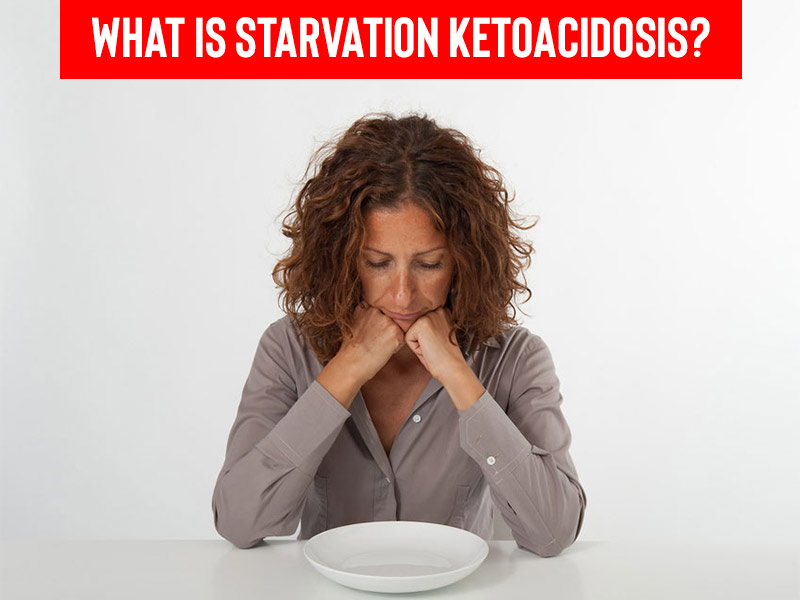
There are many people who do not eat because they're fasting or want to lose weight. It is a myth that if you starve yourself, then you can become fit. You cannot lose weight in a day and therefore you need some fruits and vegetables that can help you lose weight. Without eating any food, you can become ill and your body can have deficiency of many minerals and vitamins. Starving can also increase the risk of infections in your body. This happens because your immune system becomes weak and your muscles also start deteriorating. Starvation ketosis is a result of excessive fasting. In this process the fatty acids get replaced by glucose as the primary source of fuel in the body. Let us know what is the effect of starvation ketosis on your body.
Table of Content:-
What is Starvation Ketoacidosis?
We spoke to Dietician Ms. Chanda Verma, in order to understand the metabolic state of this process. She told that ketoacidosis is a metabolic state associated with high levels of ketones in the blood. Ketones are responsible for breaking down fatty acids to use it in form of energy. This is usually done in case carbohydrates are not present or are less in quantity. The condition of starvation ketoacidosis occurs when the body has not received enough amount of glucose as its primary source of energy. People fall for this condition due to the following reasons-
- Economic factors
- Types of eating disorders
- Difficulty in swallowing
- Cancer

There is also a condition of mild ptosis that occurs to more people than this usual condition. Mild ketosis means that the body uses fat as energy source which happens in the period of around 12 to 14 hours fast. Starvation ketoacidosis occurs in the case of buildup of ketone uses the blood to become acidic. It may even start to breakdown your muscles because it needs fat. It leads to release of amino acids and lactate into a person's blood. As a result, the liver then breaks these down into sugar to use it as a fuel.
Signs and Symptoms of Ketoacidosis
You should be aware of the following signs that could put you at risk of starvation ketoacidosis. It can include the following-
- Lower muscle mass
- Minimal body fat
- Low pulse rate
- Tooth decay
- Thin and dry hair
- Low blood pressure
- Obvious bony prominence
Also Read- Why Is Petting A Dog Good For Health?
Starvation ketoacidosis is quite rare problem and most of the people do not get into such extremes while fasting. But according to a case report of 2020, some people were found to have psychiatric issues after starvation ketoacidosis. So there might be instances of further complications if this disorder is not treated on time.
Possible Causes for Starvation Ketoacidosis
There are only few possible causes of having starvation ketoacidosis. Try to be very careful if you have any of these disorders-
- Malnutrition
- Gastric banding
- Eating disorder
- Being on ketogenic diet, especially those who do it along intermittent fasting
Risk factors of Starvation Ketoacidosis
Since most of the people have some access to the food, therefore the chances of falling for starvation ketoacidosis is quite less. However, people who follow intermittent fasting and have very strict diet routines can have this problem. There are some special diets such as keto diet that should be very carefully observed and had with expert nutritionist advice. Apart from diet and fasting, here are some causes that could create risk of developing starvation ketoacidosis.
Also Read- Platelet Deficiency: Symptoms And Causes To Prevent Adversity
- Having difficulty in swallowing, including after a surgery
- Surgery after radiation therapy
- Having underlying conditions and diseases that could cause nutritional deficiency
- Going for prolonged period of fast without adequate nutrition
Picture Credits- shutterstock.com
Also watch this video
How we keep this article up to date:
We work with experts and keep a close eye on the latest in health and wellness. Whenever there is a new research or helpful information, we update our articles with accurate and useful advice.
Current Version
